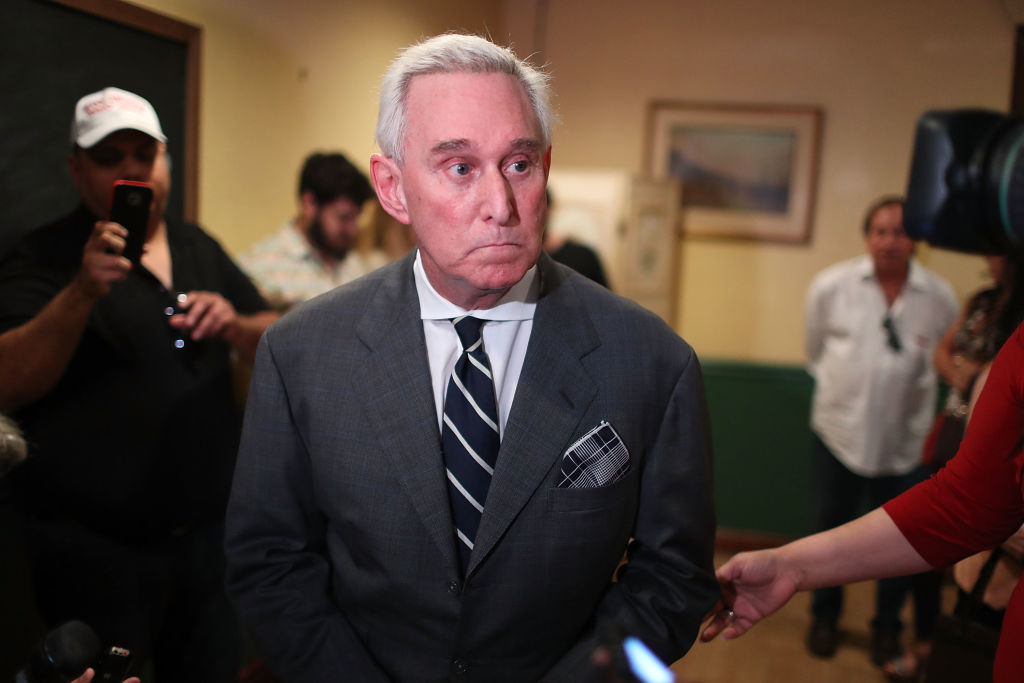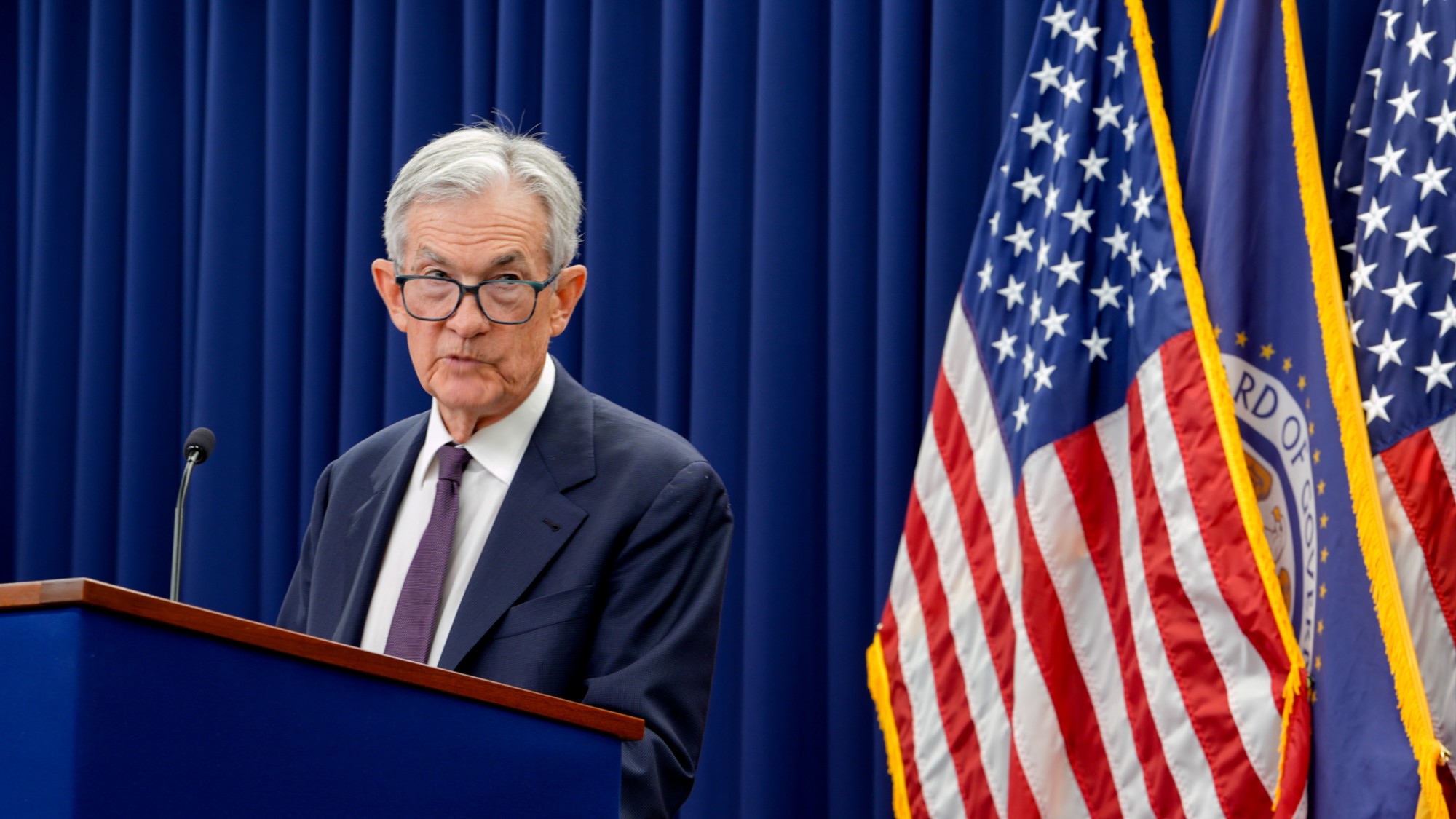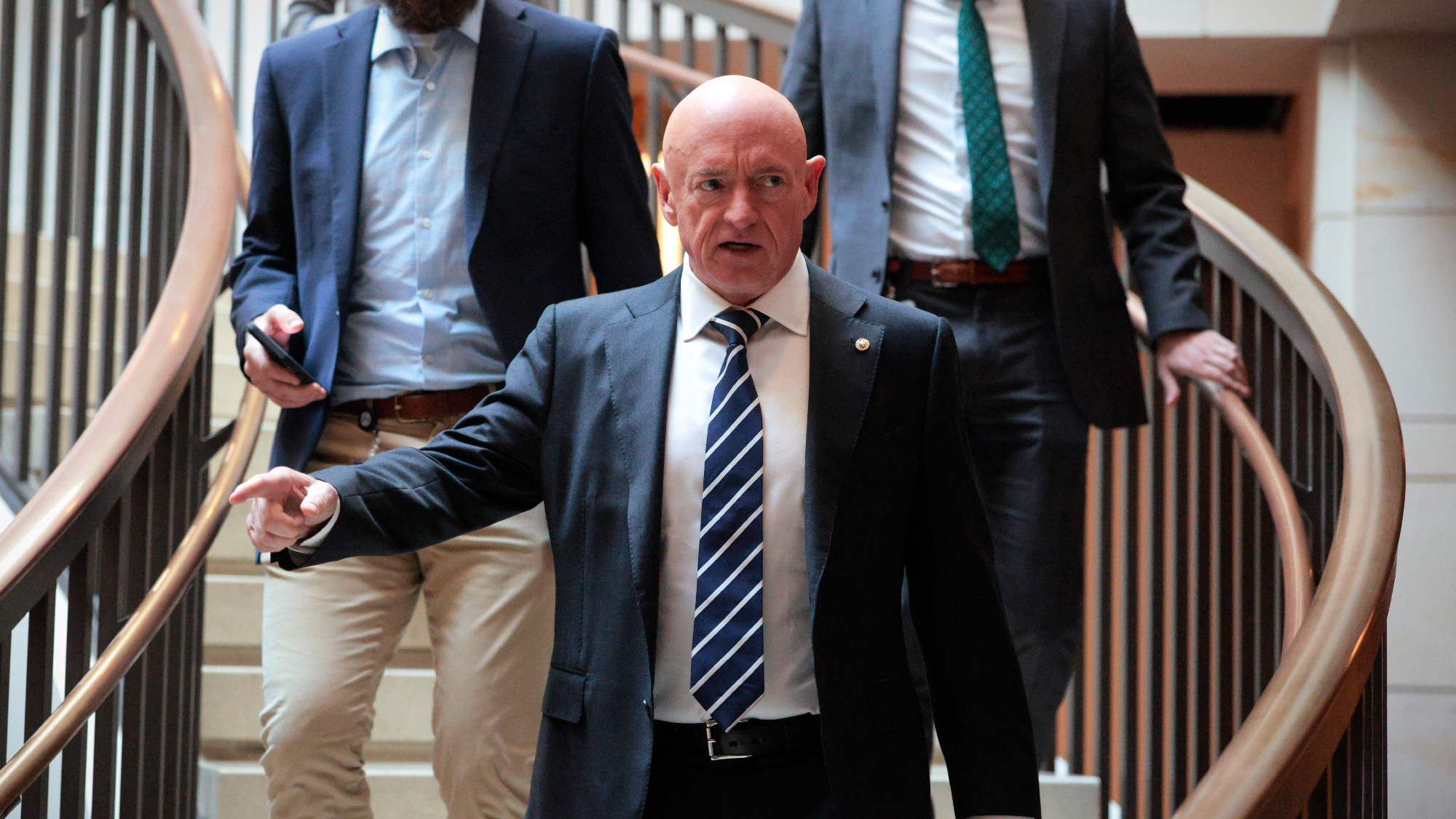Trump ally Roger Stone admits Trump's D'Souza pardon is 'a signal to Mike Flynn and Paul Manafort'


Critics of President Trump saw Thursday's full pardon of admitted campaign-finance-law violator and conservative provocateur Dinesh D'Souza as yet another signal that Trump will use his pardon power to protect and reward his allies.
"While it is nothing new for a president to use clemency to reward friends and family, there is something unique and darker taking shape," law professor and former federal prosecutor Mark Osler argues at CNN. "Trump seems to be using the pardon power not only for the sodden purpose of helping buddies, but also to hurt those who have opposed him." On Friday morning's New Day, Joe Lockhart, Bill Clinton's former press secretary, said Trump is clearly promising "get of our jail free" cards "in order to survive the special counsel probe."
But Roger Stone, an ally and longtime confidante of Trump's, said basically the same thing to The Washington Post. "It has to be a signal to Mike Flynn and Paul Manafort and even Robert S. Mueller III: Indict people for crimes that don't pertain to Russian collusion and this is what could happen," Stone said. "The special counsel has awesome powers, as you know, but the president has even more awesome powers."
The Week
Escape your echo chamber. Get the facts behind the news, plus analysis from multiple perspectives.

Sign up for The Week's Free Newsletters
From our morning news briefing to a weekly Good News Newsletter, get the best of The Week delivered directly to your inbox.
From our morning news briefing to a weekly Good News Newsletter, get the best of The Week delivered directly to your inbox.
"The constitutional pardon power is a rare and remarkable thing: It gives the president nearly unchecked power to relieve the burdens of a criminal conviction," Osler writes. "It was meant to be a tool of mercy; Alexander Hamilton described it as such in Federalist 74." But Harvard Law professor Laurence Tribe explained on New Day that like all presidential powers, it isn't absolute: "Every power of the president is limited by the impeachment clause."
A free daily email with the biggest news stories of the day – and the best features from TheWeek.com
Peter has worked as a news and culture writer and editor at The Week since the site's launch in 2008. He covers politics, world affairs, religion and cultural currents. His journalism career began as a copy editor at a financial newswire and has included editorial positions at The New York Times Magazine, Facts on File, and Oregon State University.
-
 ‘Admin night’: the TikTok trend turning paperwork into a party
‘Admin night’: the TikTok trend turning paperwork into a partyThe Explainer Grab your friends and make a night of tackling the most boring tasks
-
 Find art, beautiful parks and bright pink soup in Vilnius
Find art, beautiful parks and bright pink soup in VilniusThe Week Recommends The city offers the best of a European capital
-
 Greenland: The lasting damage of Trump’s tantrum
Greenland: The lasting damage of Trump’s tantrumFeature His desire for Greenland has seemingly faded away
-
 Trump sues IRS for $10B over tax record leaks
Trump sues IRS for $10B over tax record leaksSpeed Read The president is claiming ‘reputational and financial harm’ from leaks of his tax information between 2018 and 2020
-
 Trump, Senate Democrats reach DHS funding deal
Trump, Senate Democrats reach DHS funding dealSpeed Read The deal will fund most of the government through September and the Department of Homeland Security for two weeks
-
 Fed holds rates steady, bucking Trump pressure
Fed holds rates steady, bucking Trump pressureSpeed Read The Federal Reserve voted to keep its benchmark interest rate unchanged
-
 Judge slams ICE violations amid growing backlash
Judge slams ICE violations amid growing backlashSpeed Read ‘ICE is not a law unto itself,’ said a federal judge after the agency violated at least 96 court orders
-
 Rep. Ilhan Omar attacked with unknown liquid
Rep. Ilhan Omar attacked with unknown liquidSpeed Read This ‘small agitator isn’t going to intimidate me from doing my work’
-
 Democrats pledge Noem impeachment if not fired
Democrats pledge Noem impeachment if not firedSpeed Read Trump is publicly defending the Homeland Security secretary
-
 The billionaires’ wealth tax: a catastrophe for California?
The billionaires’ wealth tax: a catastrophe for California?Talking Point Peter Thiel and Larry Page preparing to change state residency
-
 Hegseth moves to demote Sen. Kelly over video
Hegseth moves to demote Sen. Kelly over videospeed read Retired Navy fighter pilot Mark Kelly appeared in a video reminding military service members that they can ‘refuse illegal orders’
